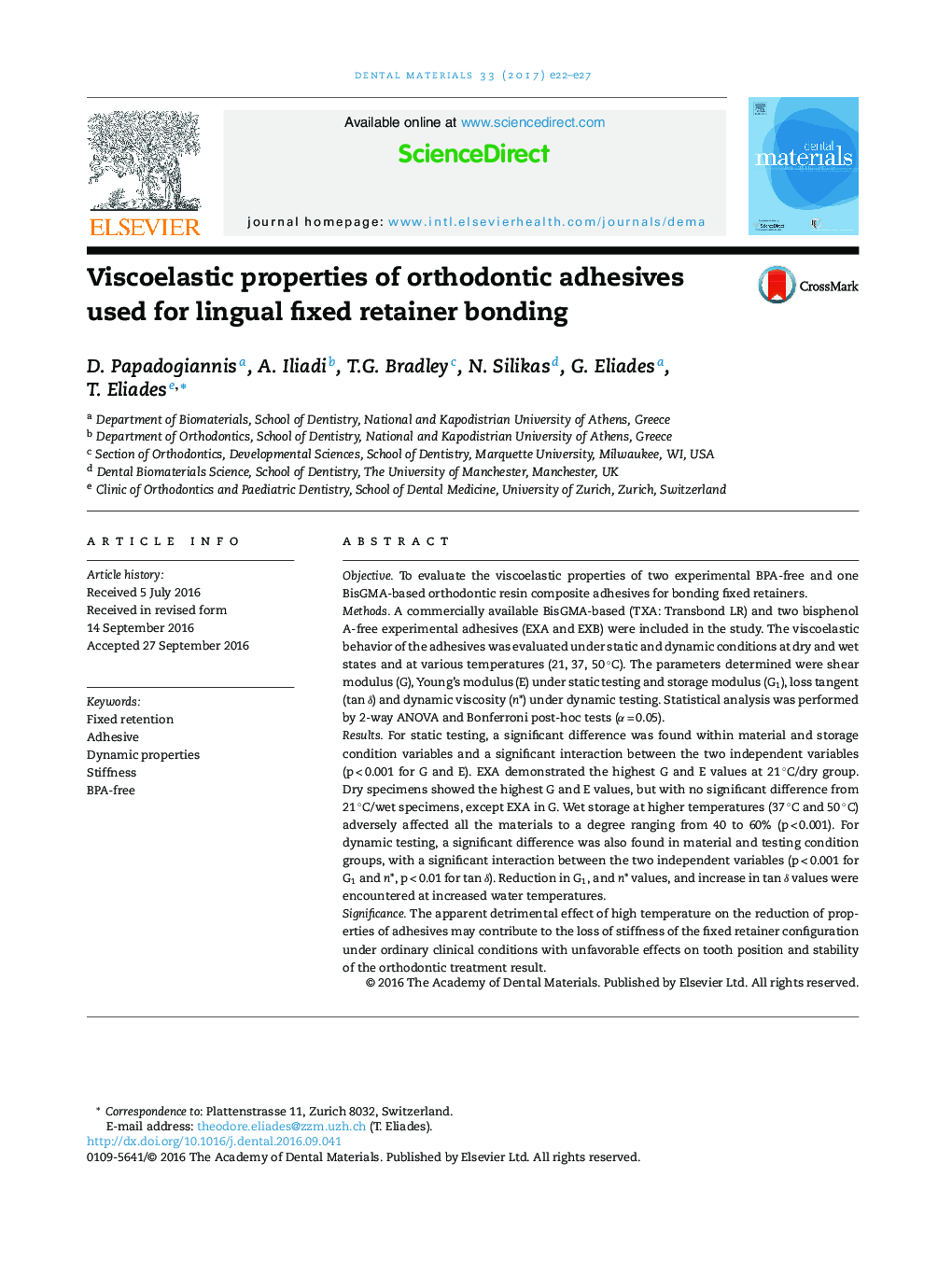| کد مقاله | کد نشریه | سال انتشار | مقاله انگلیسی | نسخه تمام متن |
|---|---|---|---|---|
| 5433167 | 1398055 | 2017 | 6 صفحه PDF | دانلود رایگان |

- Exposure of adhesives to high temperatures resulted in a reduction of properties.
- Loss of stiffness of the retainer under ordinary clinical conditions may affect treatment stability.
- A BPA-free adhesive showed similar or superior results than the control and may be considered as a alternative.
ObjectiveTo evaluate the viscoelastic properties of two experimental BPA-free and one BisGMA-based orthodontic resin composite adhesives for bonding fixed retainers.MethodsA commercially available BisGMA-based (TXA: Transbond LR) and two bisphenol A-free experimental adhesives (EXA and EXB) were included in the study. The viscoelastic behavior of the adhesives was evaluated under static and dynamic conditions at dry and wet states and at various temperatures (21, 37, 50 °C). The parameters determined were shear modulus (G), Young's modulus (E) under static testing and storage modulus (G1), loss tangent (tan δ) and dynamic viscosity (n*) under dynamic testing. Statistical analysis was performed by 2-way ANOVA and Bonferroni post-hoc tests (α = 0.05).ResultsFor static testing, a significant difference was found within material and storage condition variables and a significant interaction between the two independent variables (p < 0.001 for G and E). EXA demonstrated the highest G and E values at 21 °C/dry group. Dry specimens showed the highest G and E values, but with no significant difference from 21 °C/wet specimens, except EXA in G. Wet storage at higher temperatures (37 °C and 50 °C) adversely affected all the materials to a degree ranging from 40 to 60% (p < 0.001). For dynamic testing, a significant difference was also found in material and testing condition groups, with a significant interaction between the two independent variables (p < 0.001 for G1 and n*, p < 0.01 for tan δ). Reduction in G1, and n* values, and increase in tan δ values were encountered at increased water temperatures.SignificanceThe apparent detrimental effect of high temperature on the reduction of properties of adhesives may contribute to the loss of stiffness of the fixed retainer configuration under ordinary clinical conditions with unfavorable effects on tooth position and stability of the orthodontic treatment result.
Journal: Dental Materials - Volume 33, Issue 1, January 2017, Pages e22-e27